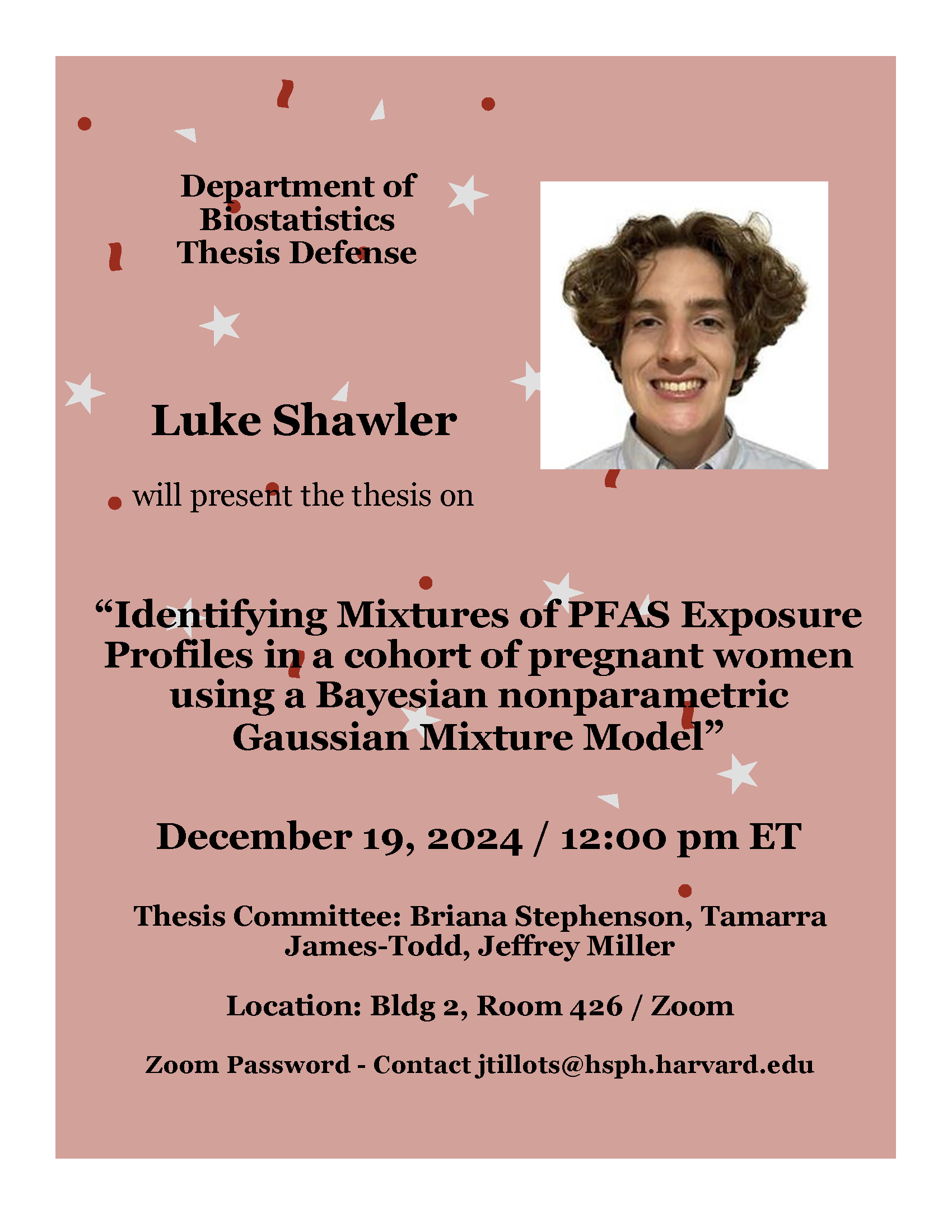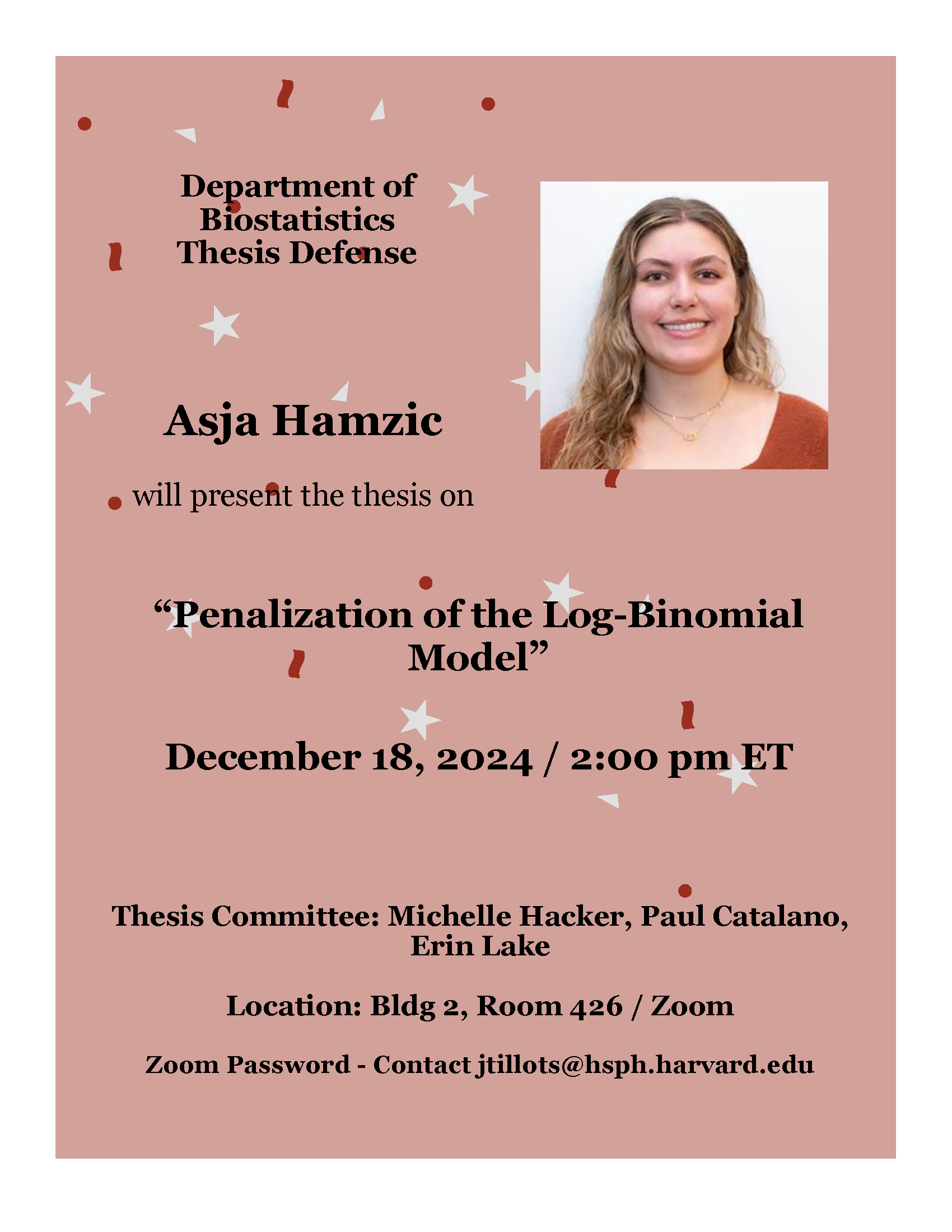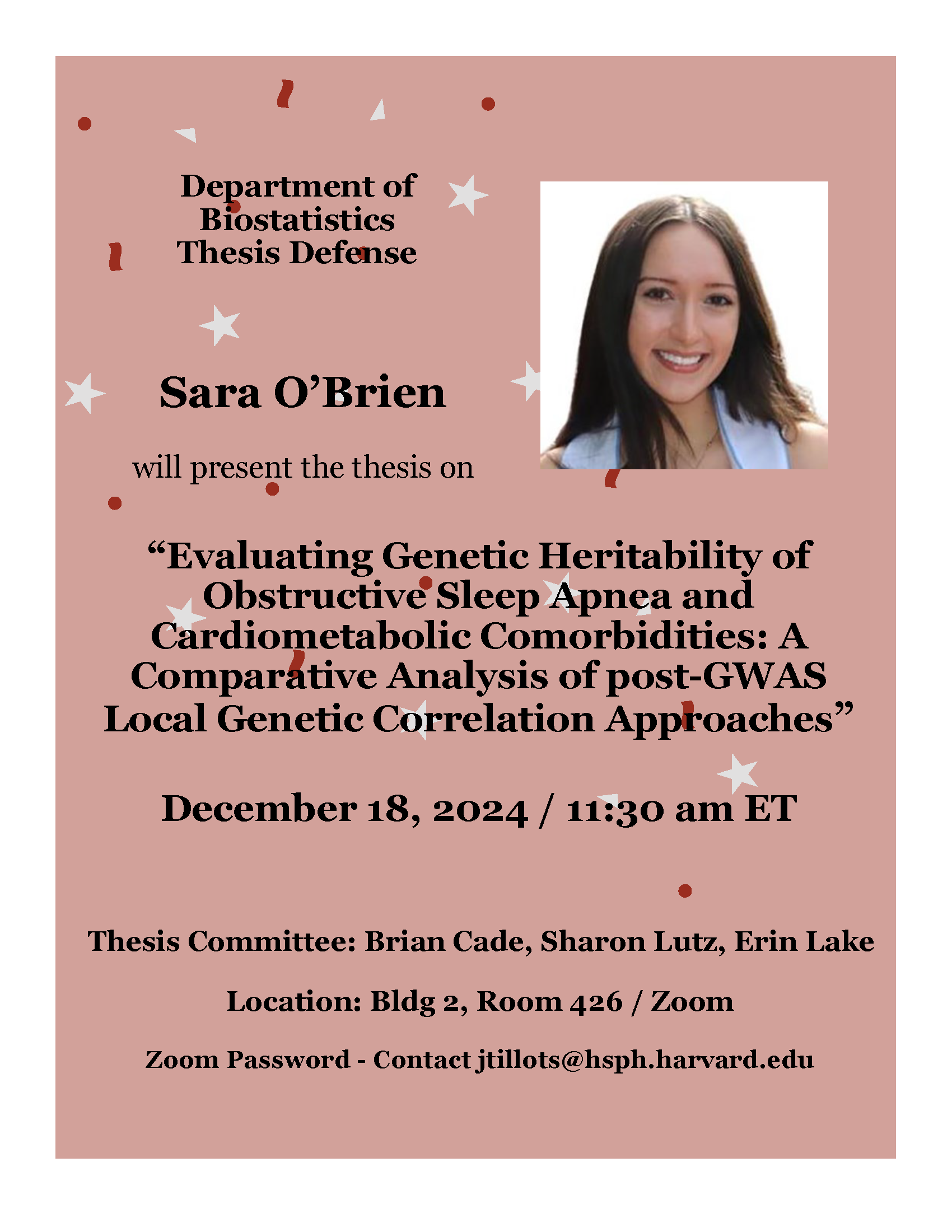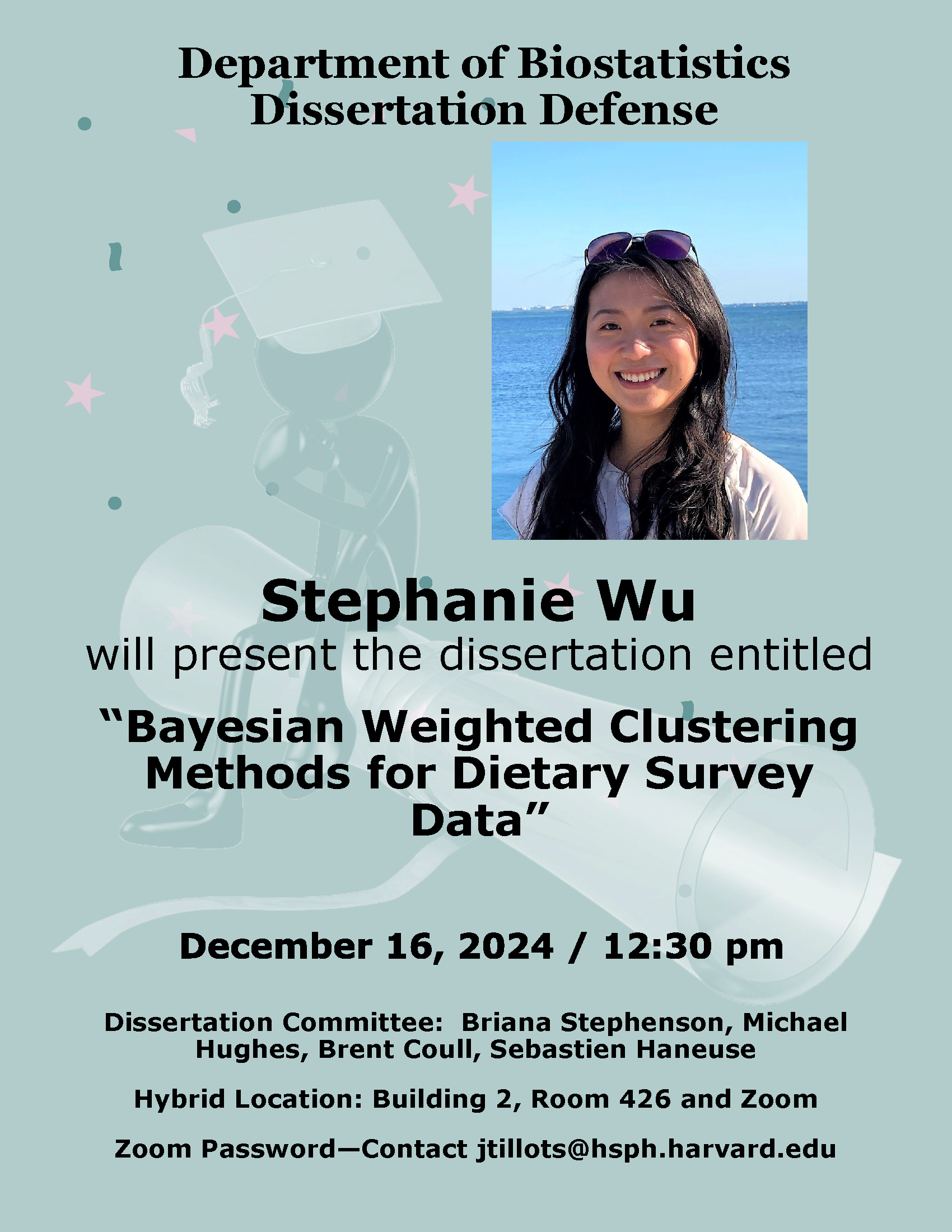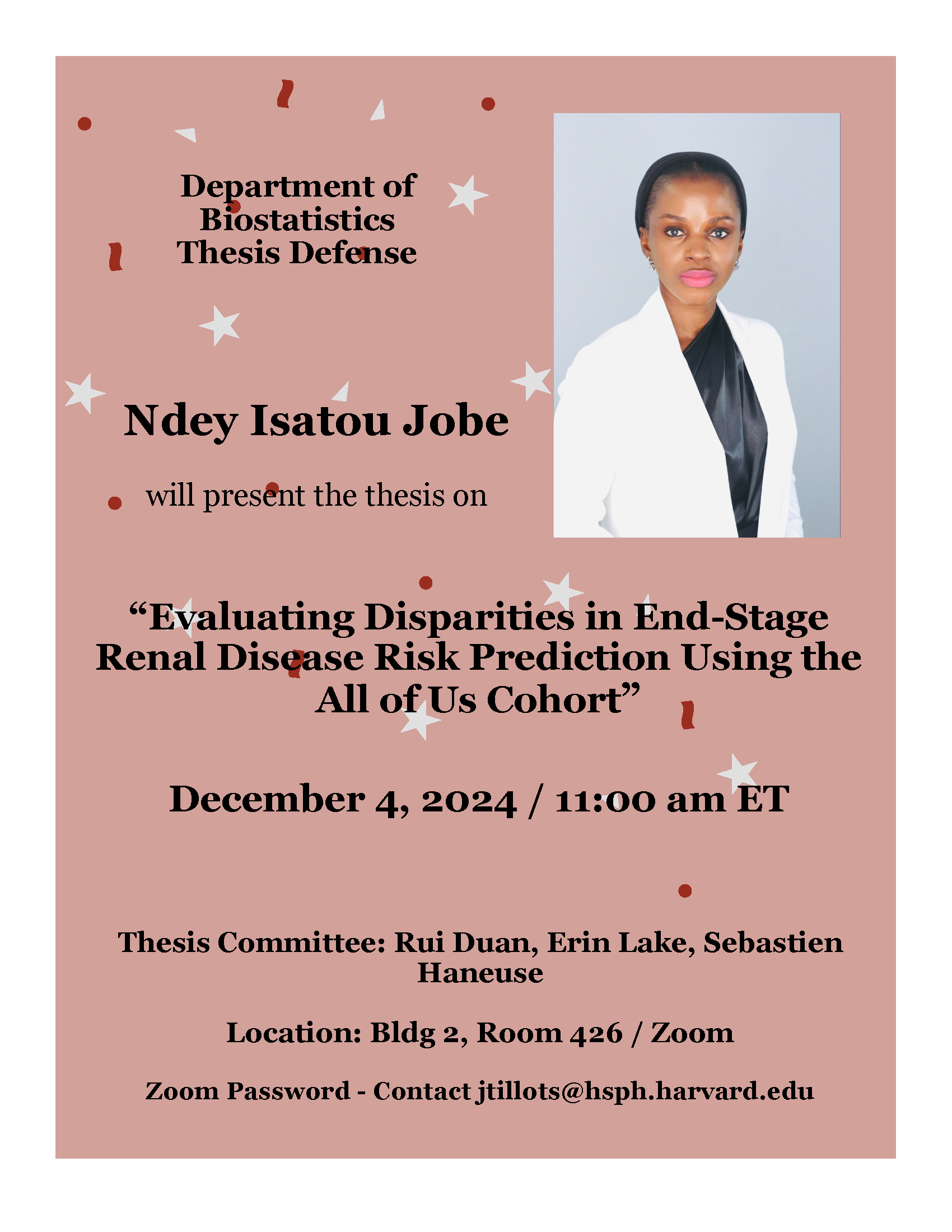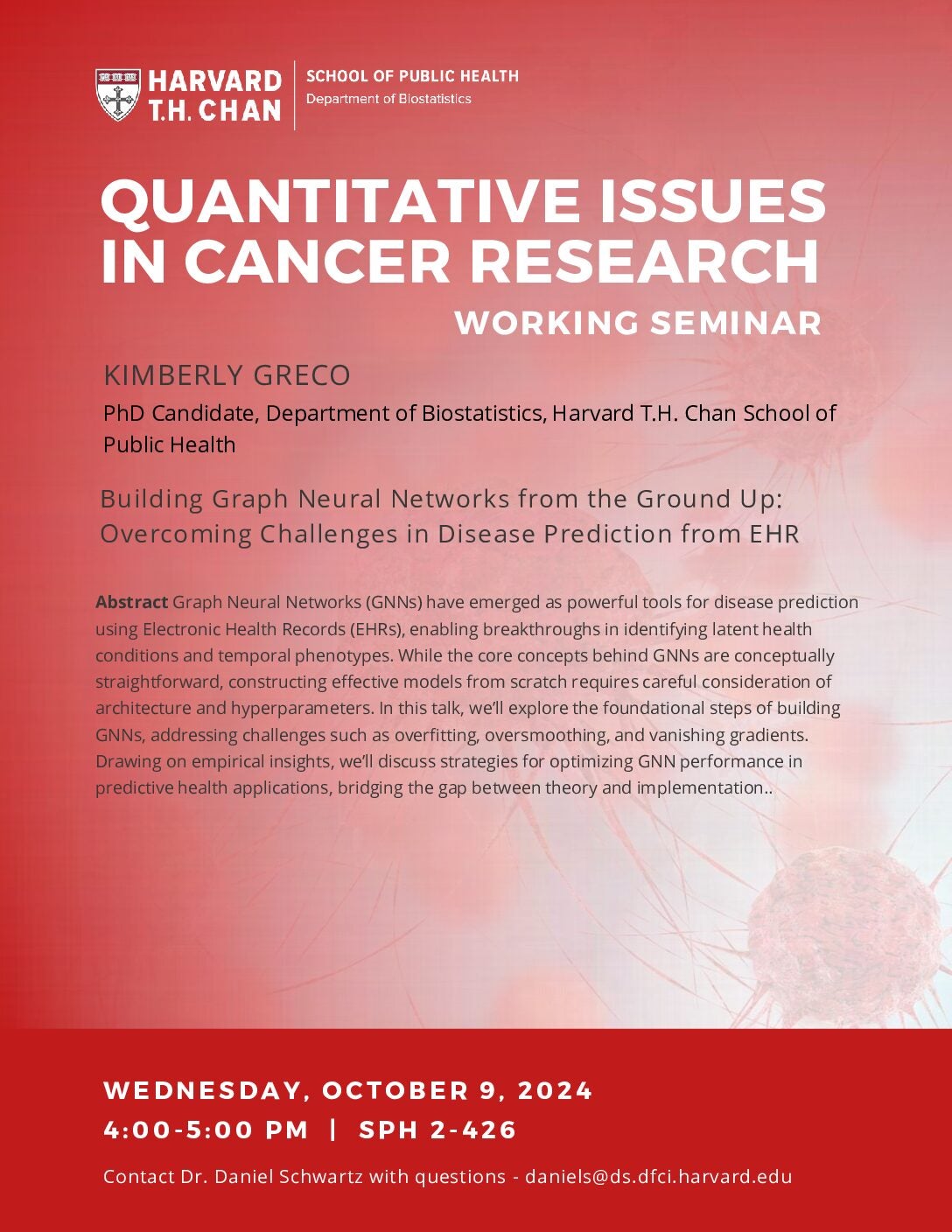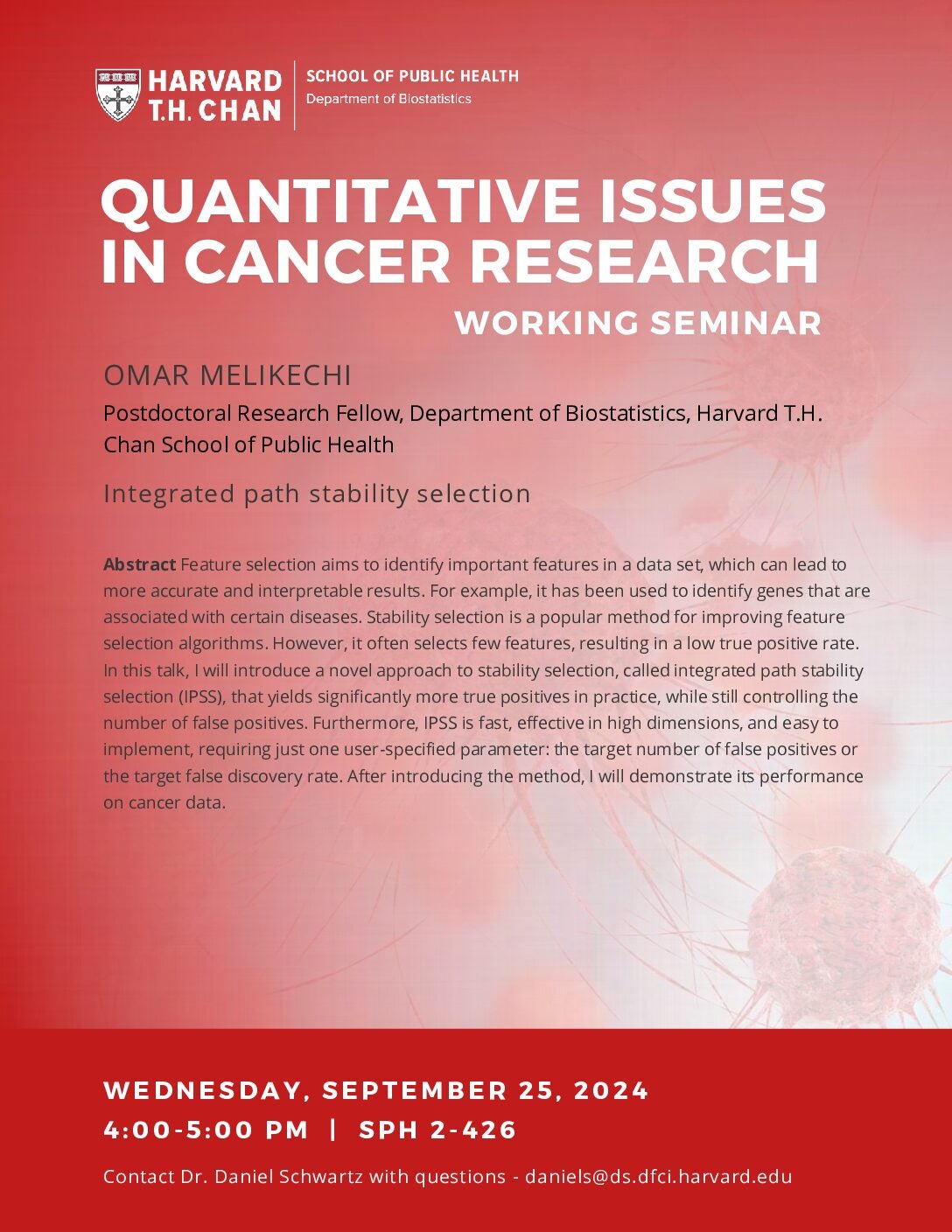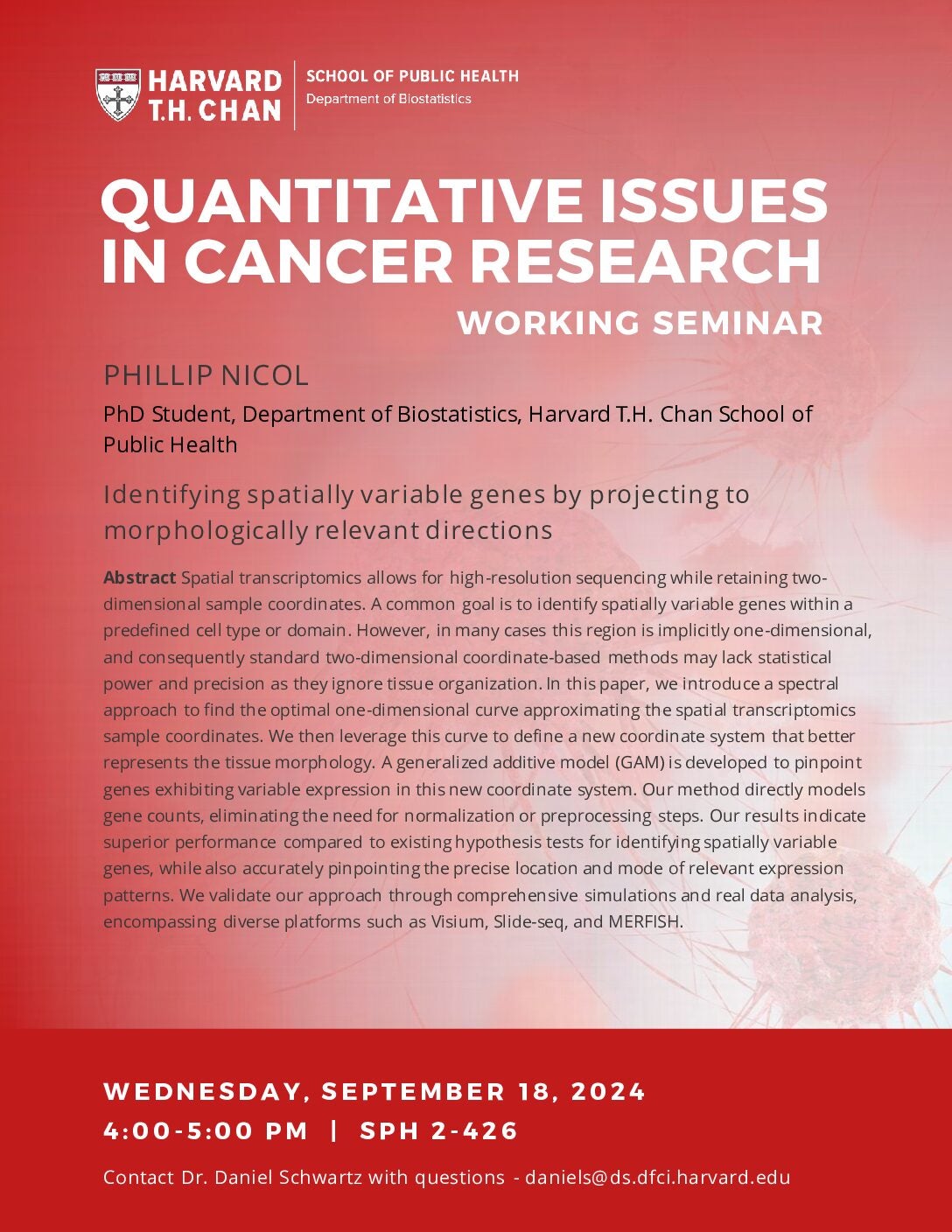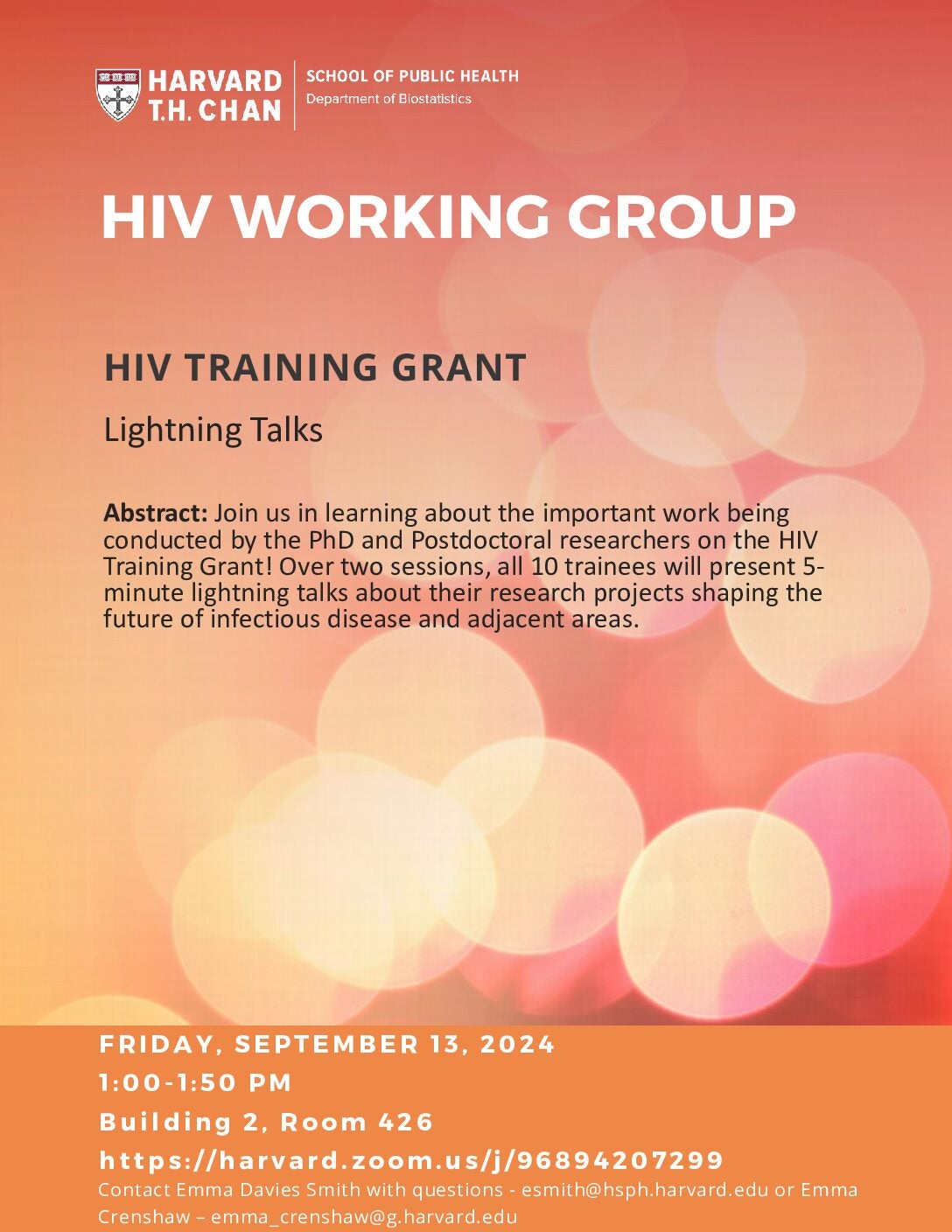Thesis Defense – Luke Shawler
Building 2, Room 426Luke will present the thesis entitled “Identifying Mixtures of PFAS Exposure Profiles in a cohort of pregnant women using a Bayesian nonparametric Gaussian Mixture Model". The thesis committee is chaired by Dr. Briana Stephenson, and includes Dr. Tamarra James-Todd and Dr. Jeffrey Miller.
